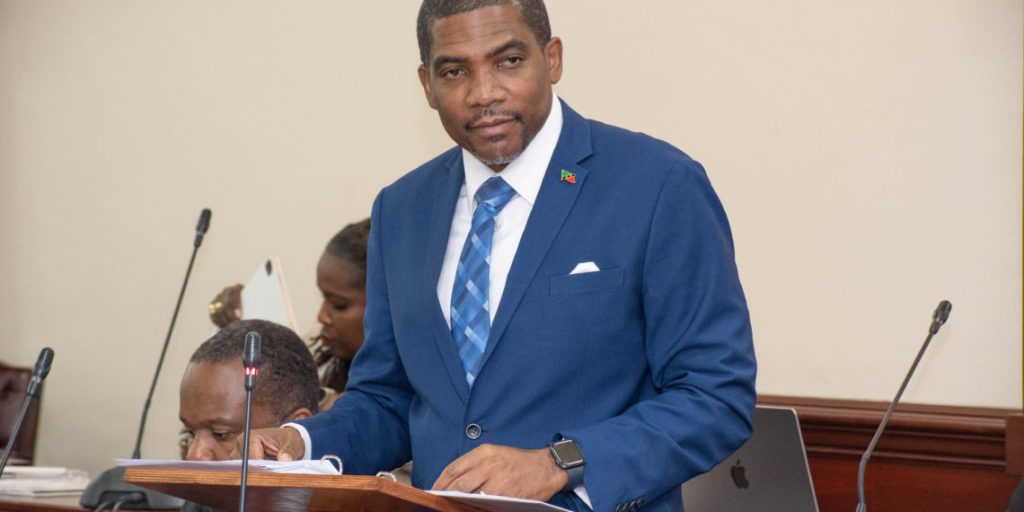Significant Decline in Firearm-Related Homicides Signals a Potential Turning Point for St. Kitts and Nevis
The 90-Day Campaign Against Crime and Violence, launched by the government of St. Kitts and Nevis in September 2024, has yielded remarkable results, marking a significant turning point in the nation’s ongoing battle against crime. The campaign’s core strategy, rooted in a public health approach to crime prevention, has demonstrably impacted the safety and security of the islands, culminating in a 66% reduction in firearm-related homicides. This dramatic decrease, from an average of three incidents per month to just three over the entire 90-day period, highlights the efficacy of a multi-sectoral approach involving not just law enforcement, but also community engagement and social interventions. The success underscores the power of collective action and the critical role of community involvement in fostering a safer environment for all citizens.
Prime Minister Hon. Dr. Terrance Drew, speaking at an event hosted by the Citizen Security Secretariat, emphasized the collaborative nature of the campaign and its achievement. He attributed the success to the unified effort of various stakeholders, including government officials, law enforcement agencies, community leaders, educators, faith-based organizations, and the citizens themselves. This unified front, coupled with a comprehensive strategy addressing the root causes of crime, proved instrumental in achieving the campaign’s objectives. The Prime Minister highlighted the significance of the reduction in firearm-related homicides, stating that the statistical impact was well beyond the margin of error, solidifying the campaign’s genuine positive influence on the nation’s security landscape.
The 90-Day Campaign’s approach differed significantly from traditional crime-fighting strategies by focusing on a holistic understanding of crime and violence. It prioritised proactive measures such as prevention, education, rehabilitation, and mental health support, recognizing that crime is often a symptom of deeper societal issues. Programs like “Elevate” and community consultations played a vital role in engaging vulnerable populations, offering support, and creating pathways to positive change. This approach acknowledged the complexity of the crime issue, emphasizing the need to address underlying factors contributing to criminal activity rather than solely focusing on reactive measures.
Simultaneously, targeted law enforcement efforts remained a crucial element of the campaign, resulting in the removal of 13 firearms from the streets so far this year. This two-pronged strategy, combining community engagement and robust law enforcement, contributed significantly to the overall reduction in crime. The emphasis on removing illegal firearms from circulation played a key role in reducing gun violence, demonstrating the effectiveness of combining social interventions with traditional law enforcement techniques. The campaign’s success serves as a model for integrated crime-fighting strategies, illustrating the potential for positive outcomes when different sectors work together towards a common goal.
The valuable insights gleaned from the 90-Day Campaign will be instrumental in shaping a comprehensive, long-term citizen security plan for St. Kitts and Nevis. The government is committed to integrating the lessons learned and best practices into the Federation’s governance framework, ensuring the sustainability of the positive changes achieved. This strategic approach underscores the government’s commitment to building upon the campaign’s momentum and creating a safer and more secure environment for all citizens in the long term. The plan will likely incorporate elements of the campaign’s holistic approach, further emphasizing prevention, education, and community engagement.
Moreover, the government of St. Kitts and Nevis plans to share its innovative approach and the successful outcomes of the campaign at the upcoming Third CARICOM Symposium on Crime as a Public Health Issue. This sharing of best practices highlights the nation’s leadership in addressing crime through a public health lens and offers a potential model for other Caribbean nations facing similar challenges. By sharing their experiences and the data supporting the campaign’s effectiveness, St. Kitts and Nevis hopes to contribute to a regional effort to tackle crime and violence, fostering greater cooperation and shared learning across the Caribbean community. Prime Minister Drew emphasized the shared nature of the victory, acknowledging the contributions of every citizen, community, and stakeholder involved in this transformative effort, underscoring the collective responsibility for building a safer and healthier St. Kitts and Nevis.
Share this content:












Post Comment